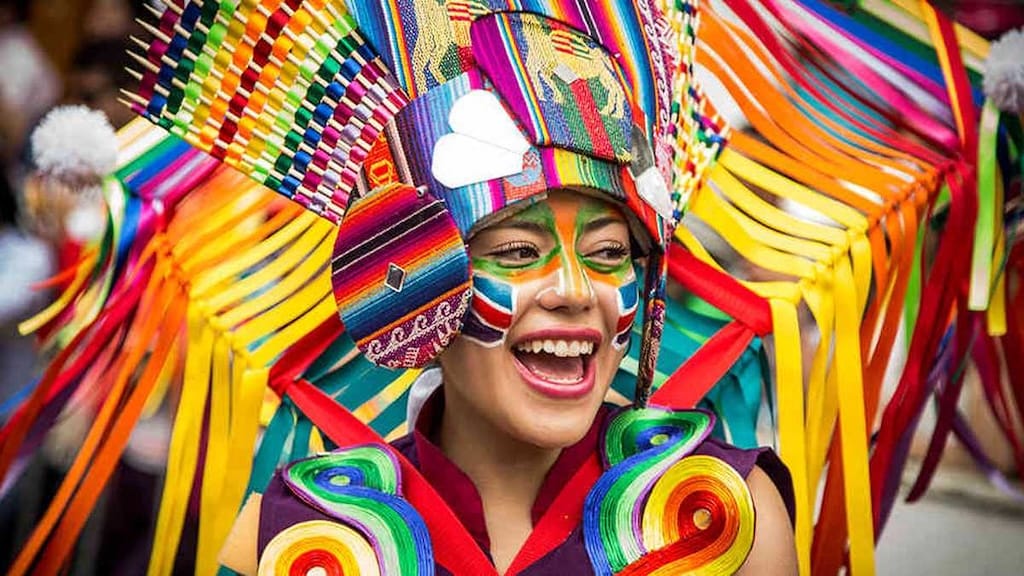
Black and White Carnival (Carnaval de Negros y Blancos) in Colombia
The Black and White Carnival, better known as Carnaval de Negros y Blancos in the local area, is among the most colorful and culturally important fiestas in Colombia. The carnival is held yearly in the city of Pasto to celebrate the ethnic diversity and unity of the region.
It's an integration of indigenous, African, and Spanish traditions, creating an experience so great that neither the participants nor the visitors will forget it. Listed as an Intangible Cultural Heritage by UNESCO, this carnival is a must-see for those who want to truly be a part of Colombia's rich tapestry of culture.
Historical Background
The Black and White Carnival has its origins in the early 16th century during the Spanish colonial period. Originally, it was a day of liberation and feasting for African slaves, who were given a day to enjoy themselves.
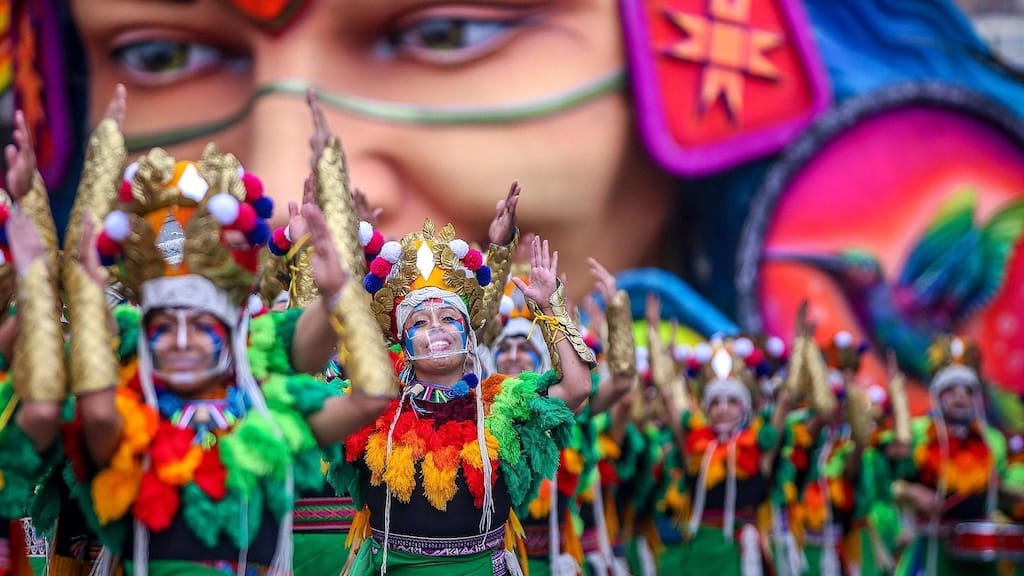
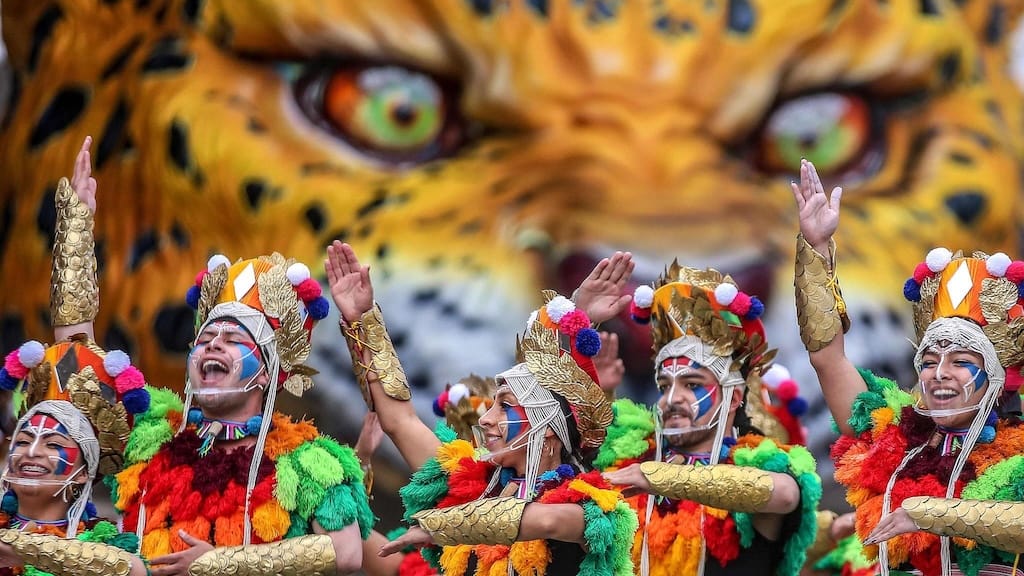
Over time, the festival evolved to include indigenous and mestizo communities, incorporating their cultural elements. The carnival became an organized event in the 19th century and has grown to become one of the most important cultural celebrations in Colombia.
Key Milestones
- Early 16th century: Enslaved Africans celebrate their day of emancipation.
- 19th century: The carnival is organized and incorporates various cultural aspects.
- 2009: UNESCO declares the carnival an Intangible Cultural Heritage of Humanity.
Typical Activities
The Black and White Carnival is popular because of its lively and colorful events, attracting millions of tourists every year.
Parades and Street Performances
- Location: Downtown Pasto
- Unique Features: Elaborate floats, traditional dances, and musical performances
- Description: Grand parades, elaborately decorated floats, traditional dances, and musical performances herald the opening of the carnival. People move around in colorful costumes reflective of the region's rich cultural heritage.
El Día de los Negros (Black Day)
- Date: January 5th
- Special Features: Face painting, music, and dance
- Description: On Black Day, people paint their faces black and engage in lavish street celebrations of music and dancing, honoring African descendants.
El Día de los Blancos (White Day)
- Date: January 6th
- Distinctive Features: Talcum powder fights, white attire
- Description: On White Day, people wear white and throw talcum powder at each other. It symbolizes the harmonious relationship and equality among ethnic groups.
Traditional Practices
Food and Beverage
Participants enjoy traditional local delicacies such as cuy (roasted guinea pig), empanadas, and ajiaco (chicken and potato soup). Traditional drinks like canelazo, a hot alcoholic beverage, are also popular.
Music and Dance
The festival is characterized by traditional music and dance forms, including Sanjuanito, Bambuco, and Cumbia. Each of these performances reflects the diverse cultural influences of the region.
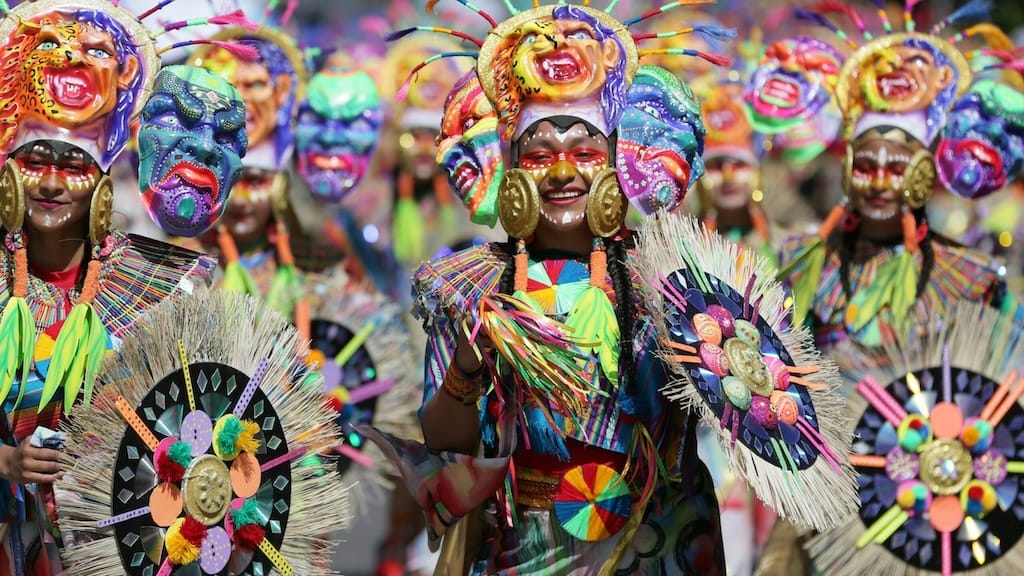
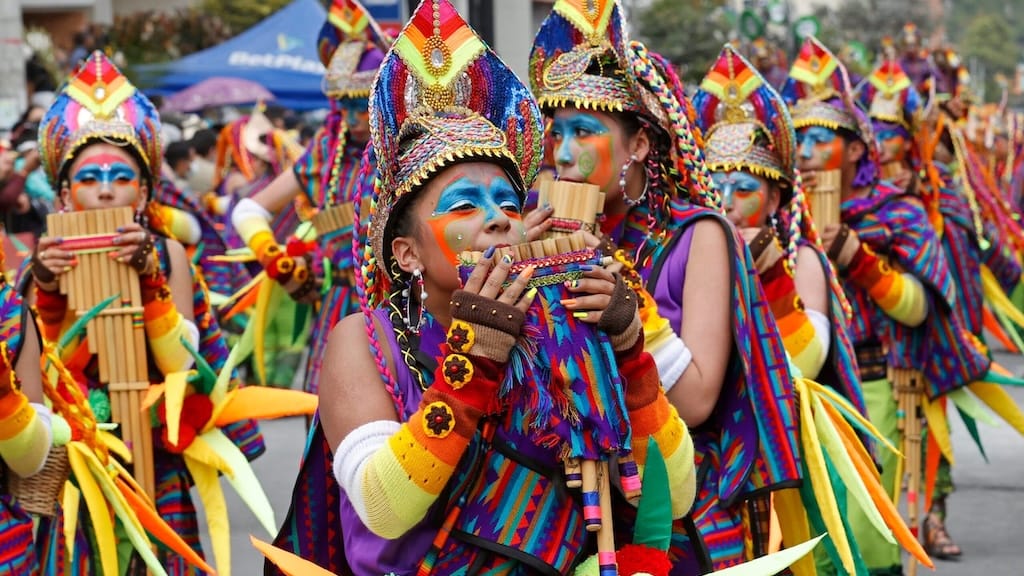
Attire
Participants often dress in colorful costumes, usually reflecting their cultural heritage. On Black Day, face painting is a common practice, while White Day sees participants dressed in white.
What to Expect
Best Time to Go
The carnival is held from January 2nd to 7th, with the principal activities occurring on the 5th and 6th.
Location Details
The event takes place in the city of Pasto in the Nariño Department of Colombia.
First-Time Attendees Tips
- Accessibility: The city of Pasto is well connected by air and road. The nearest airport is Antonio Nariño Airport.
- Accommodations: It is wise to book well in advance, as the city is always full during carnival time.
- Local Experiences: Tourists should also visit local attractions such as Laguna de la Cocha and the Galeras Volcano.
Conclusion
The Black and White Carnival is part of the very fabric of the nation's cultural heritage, underlined by the historical confluence of traditions and vibrant festivities. This carnival, with its rich historical background and current exciting activities and traditions, showcases the grand variety of the region.
Whether you are a seasoned traveler or a first-time visitor, the Black and White Carnival promises to be an event that will never be forgotten as it celebrates unity and diversity in Colombian culture. Don't miss the chance to be part of this extraordinary event and create lasting memories.